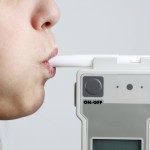Sobriety Checkpoints – Are DWI Stops in Texas’ Future?
Every year there’s an effort by politicians and groups like MADD (Mothers Against Drunk Driving) to make sobriety checkpoints legal in Texas. It’s no surprise that with nearly 1,300 alcohol related driving fatalities in 2010 alone that concerned citizens want the Texas government to take a more proactive stand on preventing drunk driving. This past week San Antonio Police Deputy Chief Anthony Trevino asked the Texas House Criminal Jurisprudence Committee to once again try to legalize sobriety checkpoints.
Despite having the highest number of fatalities, Texas only institutes 4 of the 11 recommendations put together by the National Transport Safety Board to stop drunk drivers. Sobriety checkpoints are one of the eleven recommendations and it’s a policy that’s been instituted in all but eleven states. Advocates have worked tirelessly since the mid-90’s on this issue, and it’s only natural to wonder – Why are sobriety checkpoints so controversial in Texas? It’s a controversy based on the very nature of government and how we interpret the U. S. constitution at Texans.
Sobriety Checkpoints – Understanding the Process
If you’ve lived most of your life in Texas like I have then you’ve never even seen a sobriety checkpoint. It’s basically a road block set up by law enforcement officers who check drivers for signs of impairment. A sign is put up near the checkpoint letting drivers know what is up ahead. Vehicles are stopped in a specific sequence like every fourth or sixth vehicle. If the officer believes a driver may have been drinking, that driver will take a breathalyzer. For most law-abiding folk, the whole things takes up about as much time as a stop light would.
 Sobriety checkpoints are often placed in “hot spots” where statistics indicate DWI accidents are more common. By allowing police officers to get a good look at each driver, the chances that a drunk driver will slip by law enforcement undetected are much smaller. Sobriety checkpoints also act as a deterrent. If a driver thinks they may have to be stopped and looked over by a cop on the way home, he or she may be a lot less likely to get behind the wheel drunk.
Sobriety checkpoints are often placed in “hot spots” where statistics indicate DWI accidents are more common. By allowing police officers to get a good look at each driver, the chances that a drunk driver will slip by law enforcement undetected are much smaller. Sobriety checkpoints also act as a deterrent. If a driver thinks they may have to be stopped and looked over by a cop on the way home, he or she may be a lot less likely to get behind the wheel drunk.
Certain states set up checkpoints during holidays or special events like the Superbowl where many people might be out drinking. The frequency of checkpoints can range among different states from weekly to monthly. Each state has a slightly different program, but the general procedure is the same: stop traffic and check drivers. It’s those same founding principles that cause division among Texan lawmakers.
The Constitutional Argument – Search, Seizure & Sobriety
In Texas the argument is that sobriety checkpoints are illegal under the U. S. Constitution. Despite the current Texan view, it’s important to note that the U. S. Supreme Court itself found properly conducted sobriety checkpoints to be constitutional in Michigan v. Sitz. The constitutional conflict centers on the question, Can the police stop me if I haven’t done anything wrong? The U. S. bill of rights generally prohibits law enforcement from searching or targeting someone who has not given the police any reason to be suspicious as a part of the fourth amendment against illegal search and seizures.
Our civil rights are essential, but many state courts along with the national Supreme Court feel drunk driving is an exception. Part of the exception is the high number of deaths that result from drunk driving and how those deaths can be prevented.
 Like many constitutional arguments, the devil’s in the details. In this case it’s the idea of “I haven’t done anything to give the police probable cause.” Driving while under the influence or driving while intoxicated is a crime that happens the minute you turn your car on if your blood alcohol level is past a certain limit. How well you drive is actually irrelevant in terms of the law. Technically, you don’t really have to “do” anything to become a suspect. This makes probable cause very hairy.
Like many constitutional arguments, the devil’s in the details. In this case it’s the idea of “I haven’t done anything to give the police probable cause.” Driving while under the influence or driving while intoxicated is a crime that happens the minute you turn your car on if your blood alcohol level is past a certain limit. How well you drive is actually irrelevant in terms of the law. Technically, you don’t really have to “do” anything to become a suspect. This makes probable cause very hairy.
Stopping someone who is behind the wheel while intoxicated is actually stopping them “in the act” even if they are not behaving strangely. The idea of I haven’t “done” anything wrong is tricky because if you are intoxicated behind the wheel your state of being is in itself illegal. How do you check someone for a crime that is based only on blood alcohol limit and not on specific behaviors? This legal interpretation means that anyone could be a drunk driving suspect, in which case the fourth amendment is not relevant.
Checkpoints – Personal Inconvenience vs. Public Good
Beyond the legal details, the heart of the argument in favor of sobriety checkpoints is about protecting the public. There are many lives at risk and while a sobriety checkpoint is far from ideal, it is necessary.
In many ways a sobriety checkpoint and a security checkpoint are similar. Most people find security checkpoints at the airport or at a courthouse to be somewhat annoying. We’re used to moving through places quickly and we’re used to being trusted. Having to stop and open a bag or a briefcase in front of someone else is no one’s idea of fun. We grumble, but we do it anyway and not simply because it is required. We do it because we realize that ultimately a minor inconvenience is a small price to pay for safety.
In a way we are making a trade. We are trading this little piece of our personal space and time for the well-being of the community as a whole. We have to balance our individual civil rights with the needs of others. Most times in the United States, particularly in the great state of Texas, we lean towards the side of personal freedom – which is something to be proud of. However, there are times where we must make an exception. This is one of those times.
Solutions At Work – No Refusal Campaigns Set the Stage for Checkpoints
When thinking about the balance between civil rights and drunk driving, keep in mind that in certain counties there are already holidays where the police institute “no refusal campaigns.” A no refusal campaign is where the officer can require you to give a blood sample that is tested for blood alcohol level. You don’t have the usual right to say “no” to the test, and if the blood test shows that you are over the limit, the evidence can be damning in court.
 A no refusal policy touches on the same civil rights arguments as a sobriety checkpoint. Yet, it has become more accepted in North Texas counties and is not held to be unconstitutional in the state. Like a checkpoint, the campaign is equal parts catching violators and deterring potential violators. These campaigns have been largely successful and grants have raised money to expand the local program in Fort Worth.
A no refusal policy touches on the same civil rights arguments as a sobriety checkpoint. Yet, it has become more accepted in North Texas counties and is not held to be unconstitutional in the state. Like a checkpoint, the campaign is equal parts catching violators and deterring potential violators. These campaigns have been largely successful and grants have raised money to expand the local program in Fort Worth.
Now that we know that North Texan law enforcement is capable of handling anti-drunk driving campaigns like these with overall efficiency, why not give the police a chance to institute sobriety checkpoints? The public has been able to accept the first step forward, isn’t it time we took the next step towards rooting out drunk driving?
In states where sobriety checkpoints are already in place, some studies measured the public approval rating as 90%. If the Texas state government takes the imitative, public support is statistically likely to follow.
A Matter of Life & Death
Sobriety checkpoints save lives, and that’s more important than anything else. If there comes a time where we have more effective means of preventing drunk driving, and lives are no longer at stake than we can revisit the issue of personal freedom. Right now, we can’t afford to take that chance. Texas continues to have a higher than national rate of drunk driving accidents and fatalities. We have to do more to combat this problem. A sobriety checkpoint system is one more tool that we could be using to improve the safety of Texans.
Instead of looking at sobriety checkpoint as Why are they stopping me? I’m innocent? Start thinking of it like, If they hadn’t have stopped him. He would have hit my car and injured my family. Those who have lost loved ones to drunk drivers in the past know that the hindrance of a checkpoint is a small price to pay.
Keep our neighborhoods and families safer during this holiday season by encouraging your State representative to support sobriety checkpoints. In 2010 a law made it past the House and nearly through the Senate. As the new year begins it’s time to make drunk driving prevention a priority once more. Let’s finally make sobriety checkpoints legal in 2013.
Category: In Depth






